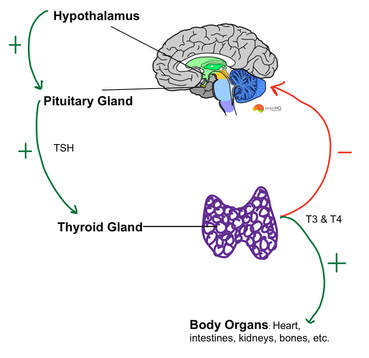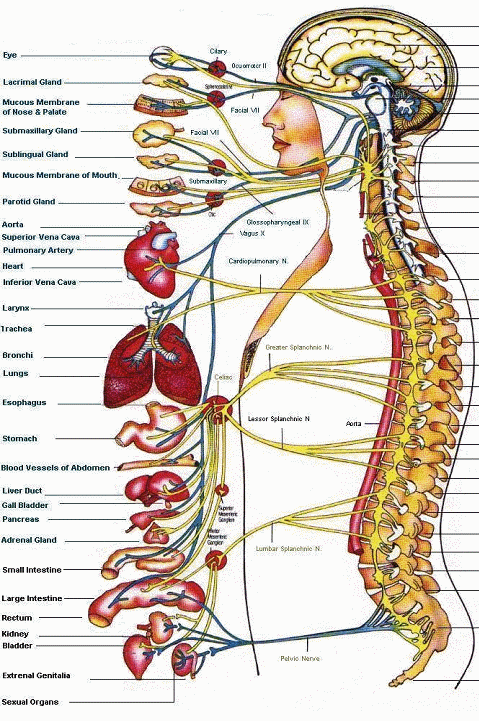 By Dr. Chelsea Bachelor Depression, fatigue, and anxiety are three very common issues among the female population today. Too often these symptoms are overlooked as “feeling run down”, or even misdiagnosed as a generalized anxiety disorder. If you are chronically suffering it may be time to take a deeper look, and these three symptoms could all be linked to a disorder in your Thyroid Gland. This gland, located in the front part of the neck, releases chemicals to help monitor our metabolism a.k.a. the way the body uses energy. It's job is to influence and monitor things like heart rate, how quickly we digest food, even our menstrual cycles. Thyroid dysfunction affects women about 8 times more often than men, usually between ages 20-40. Symptoms can range in severity, and women often find themselves ignoring the signs or being wrongfully encouraged to just “push through” it until even getting out of bed is a challenge. Accepting this anxiety or low level of energy not only creates the opportunity for a dangerous problem to worsen, but it can keep you from taking advantage of the things you love doing. No one wants to miss their daughter’s soccer game or not enjoy a warm day with their friends because they are just too drained to participate. Many of our hormonal activities are controlled via feedback loops. Signals such as stress or temperature changes create hormonal cascades to either increase or decrease the mixture of substances in our bodies. Our nerve system is responsible for receiving information, interpreting it, then sending it out to other organs to communicate what the body needs in order to reestablish balance. When circulating thyroid hormones are low, the hypothalamus stimulates the pituitary gland to release Thyroid Stimulating Hormone (TSH). Once TSH reaches the thyroid gland it creates a positive feedback loop and initiates steps to create Triiodotyrosine (T3) and Thyroxin (T4) to release into the blood stream. When enough T3 and T4 are made, then a negative feedback loop is created with the brain, encouraging it to stop asking for more. T3 and T4 are important drivers of our metabolic function. Too many of these hormones in circulation is referred to as hyperthyroidism, and too little is known as hypothyroidism. As mentioned above, the symptoms of having too much or too little can be slow to develop but have many similarities. Things like muscle weakness, fatigue, depression, weight gain, temperature intolerance, difficulty concentrating, joint pain, muscle cramps, menstrual irregularities – the list goes on. Some women may experience all of these issues at once or just a few, which can be where the difficulty lies with identifying the root of the problem. If a chiropractor recognizes your issues as thyroid dysfunction, they will refer you to another doctor in order to co-manage using the accepted standard of care treatments. You may be wondering – what on earth does chiropractic care have to do with the thyroid and hormonal imbalances?? Complications in the thyroid can happen for many reasons- one of which being that the correct information is simply not reaching it. All signals passed between the brain and the body are sent via your nerve system roadway. Think of it like a complex game of telephone - if everyone in the group is paying attention then the message makes it around the circle with no issues. However if one or two group members are mumbling or distracted, then the final message will not match the intended one.
Same goes for the signals in your spine, except the inattentive members of the group are misalignments of the spinal bones relative to each other. Discovering these problem areas and correcting them is what chiropractic is all about! The thyroid gland receives its signals from the nerves in your neck region. Improper movement of the neck bones could interrupt the nerve signals being passed from brain to body and affect the communication between the pituitary gland and the thyroid gland. Without the proper information on what the rest of the body needs, the thyroid gland may be producing too many or not enough hormones- leading to or worsening thyroid disorders. A study published in October of 2017 followed a 34-year-old woman's improvements with her Hypothyroidism and Irritable Bowel Syndrome (IBS) while under chiropractic care. She was diagnosed with hypothyroidism in 2014 and had been taking a thyroid medication prescribed by her medical doctor ever since. After receiving regular care from her chiropractor she reported less discomfort from her IBS and thyroid, as well as relief from her low back pain. When she went to her medical doctor for her yearly physical, a follow-up thyroid function test was performed. It was discovered that all of her thyroid markers had normalized, and her T3 levels were actually slightly elevated. Her medical doctor explained that her thyroid had “over-replaced” itself, and she was promptly taken off her medication!1 Contact your doctor if you suspect that you may be suffering from thyroid dysfunction. Confirmation is made using a simple blood test, and chiropractic care can be of great support to help your body heal! 1. Campbell A, Delander K. Resolution of hypothyroidism and irritable bowel syndrome in a 34-year-old female following chiropractic care to reduce vertebral subluxation: a case study and review of literature. J Vert Sublux Res. 2017;2017:209-220.
0 Comments
Your comment will be posted after it is approved.
Leave a Reply. |
AuthorsDr. MJ Wegmann, Archives
July 2023
Categories
All
|


 RSS Feed
RSS Feed